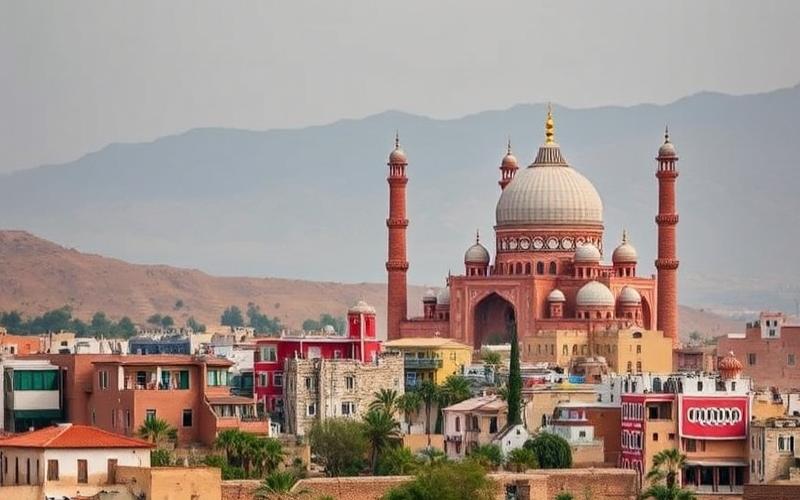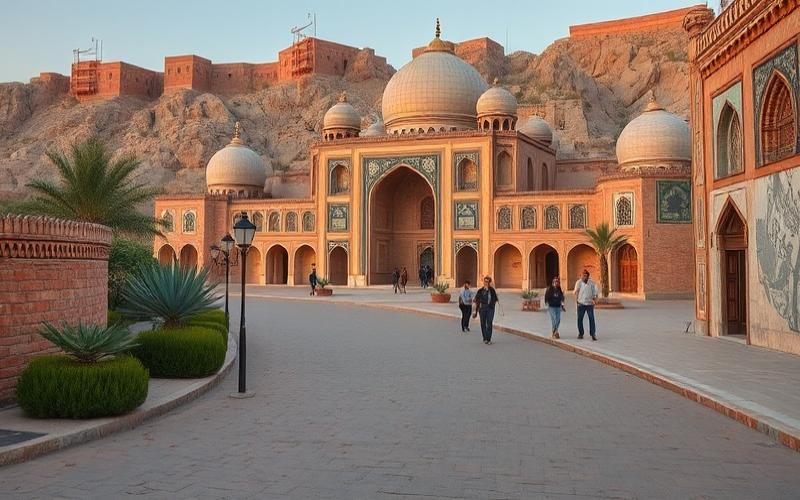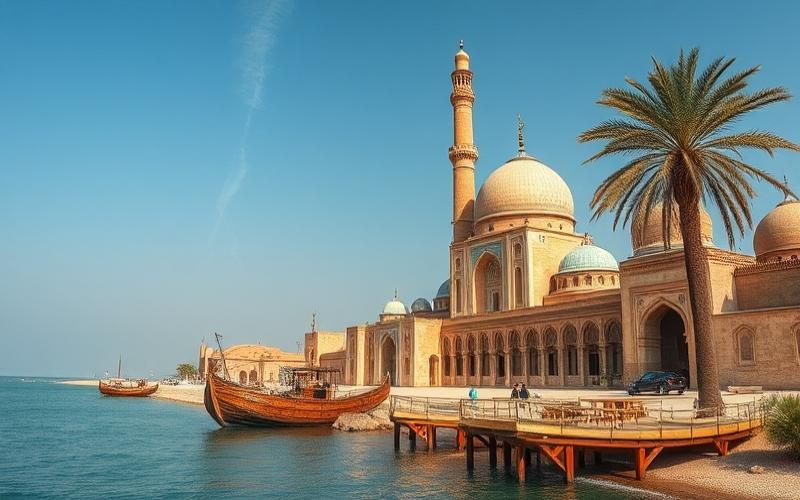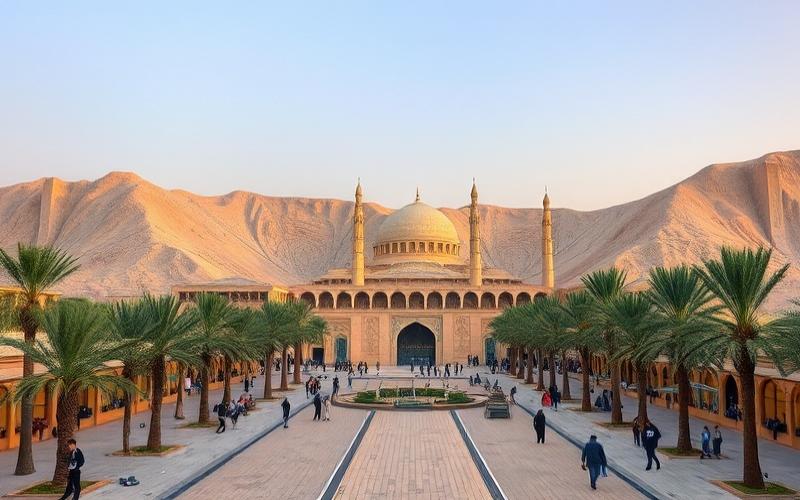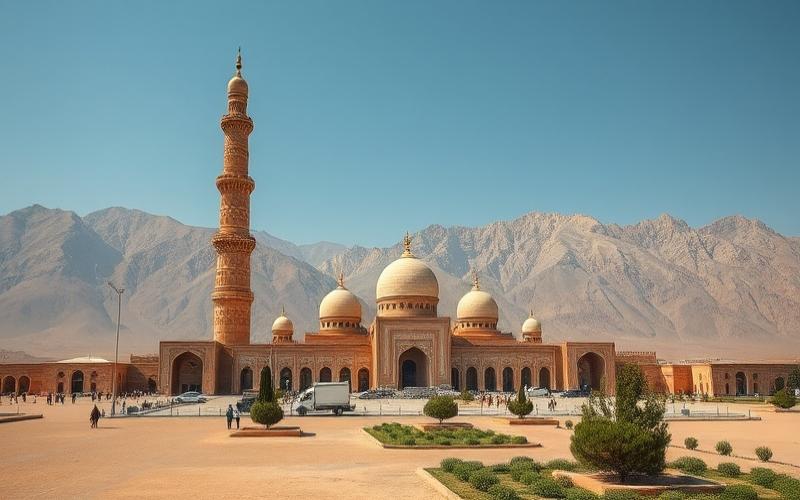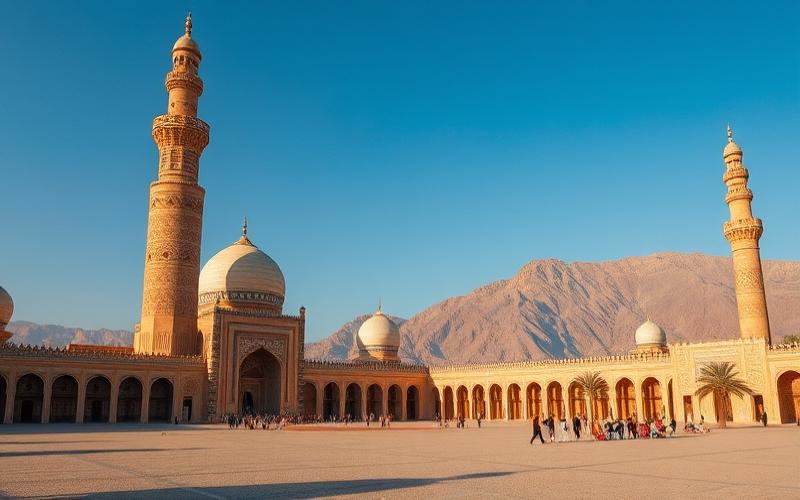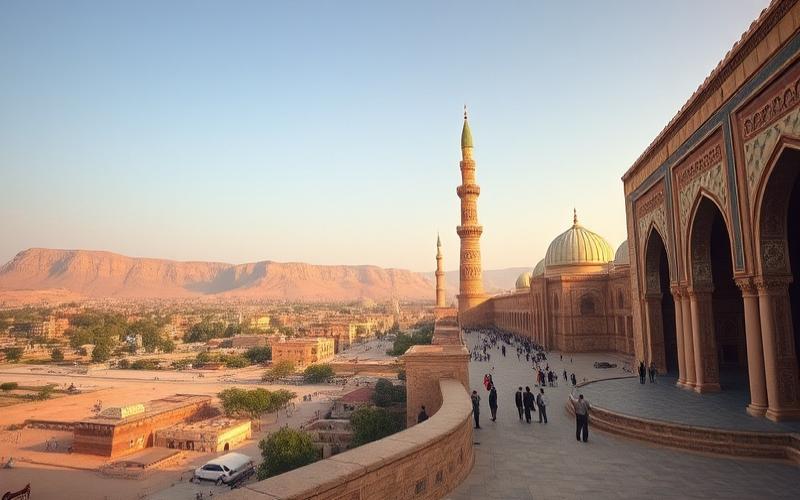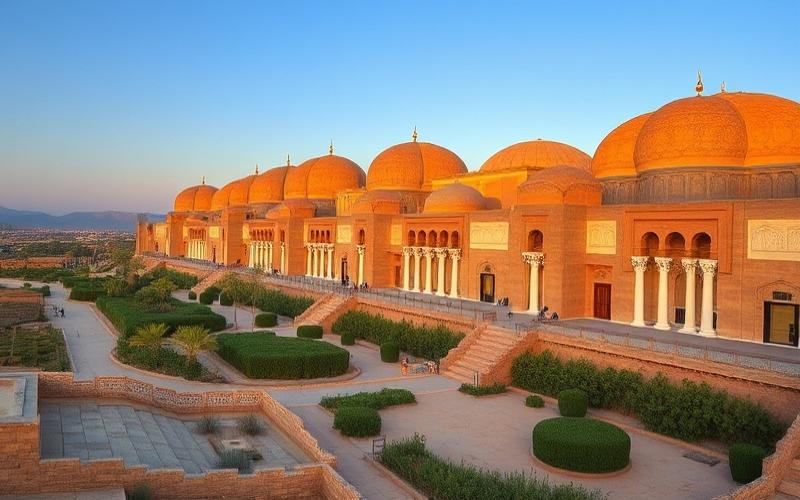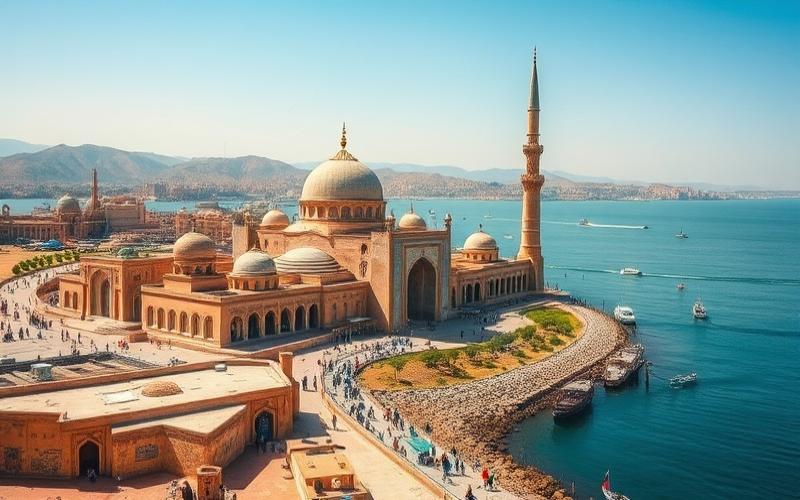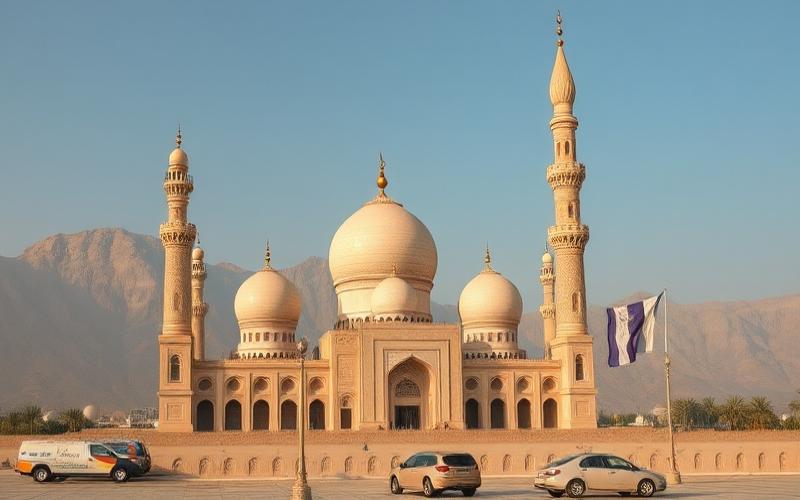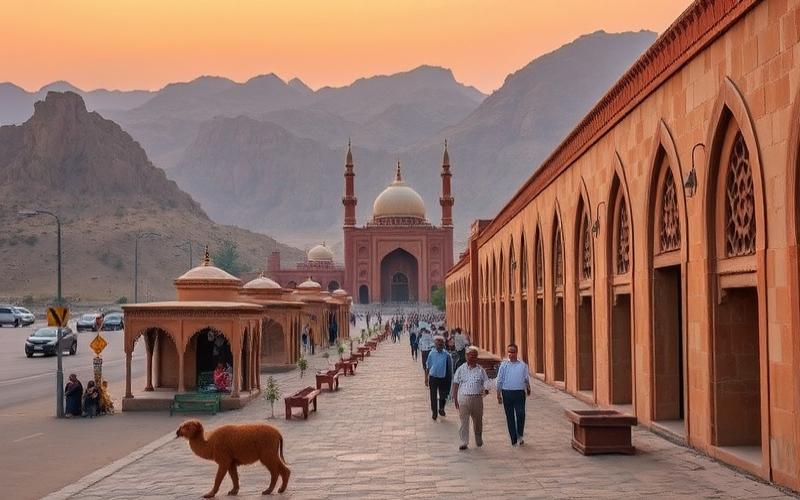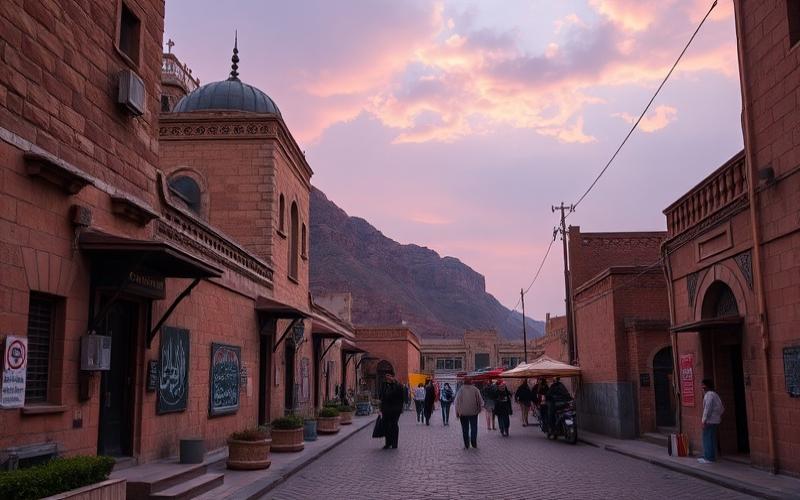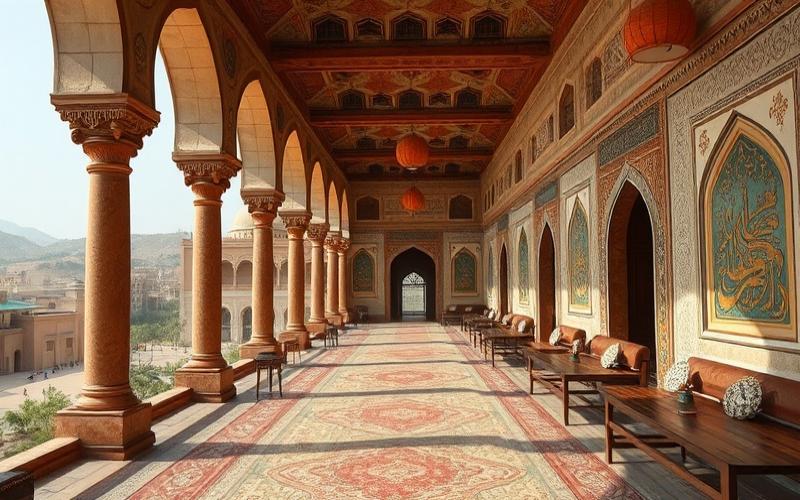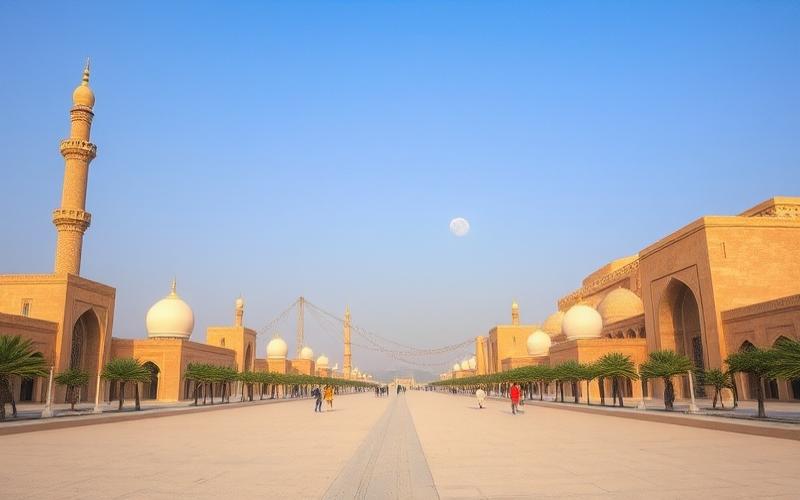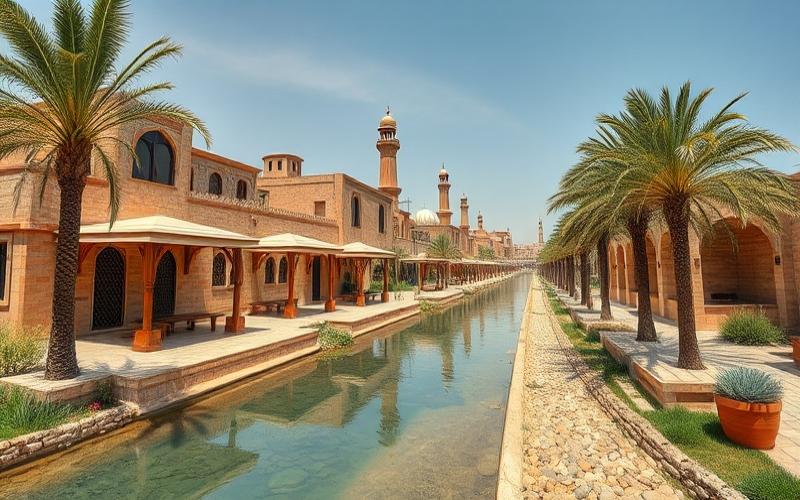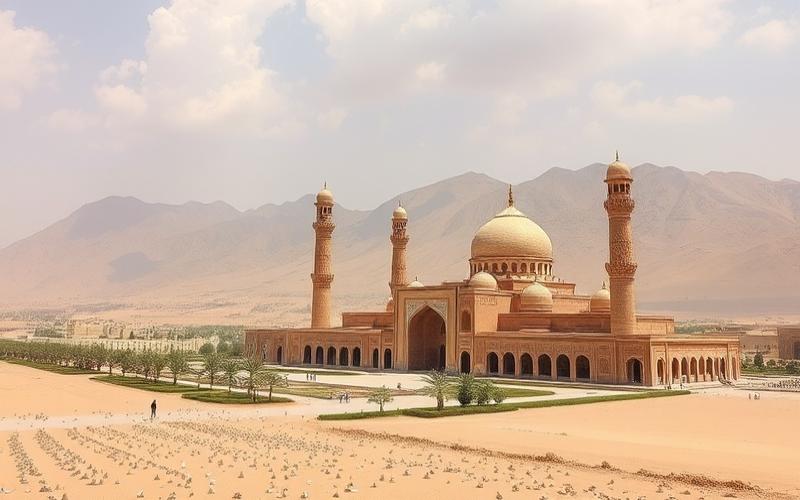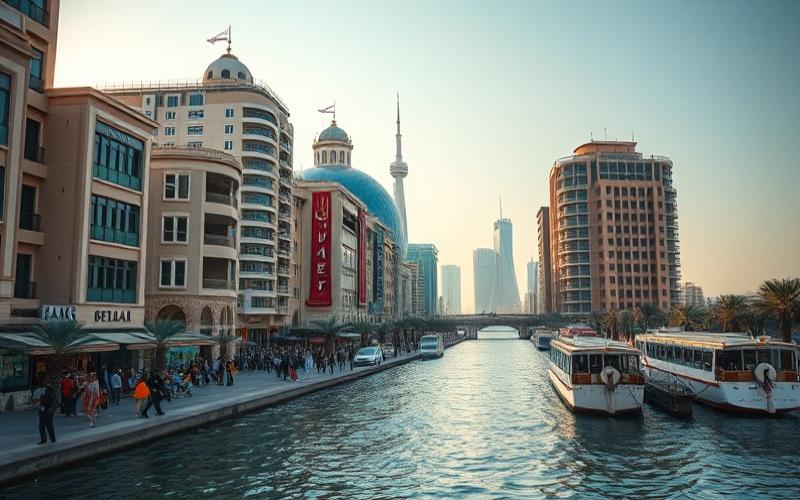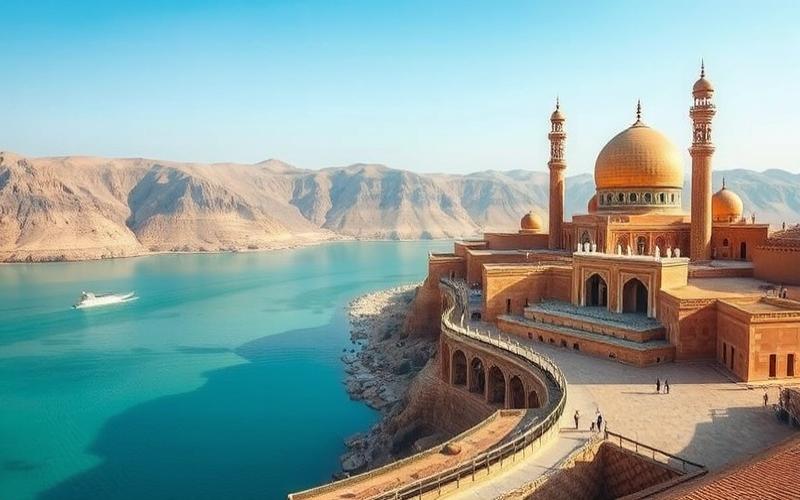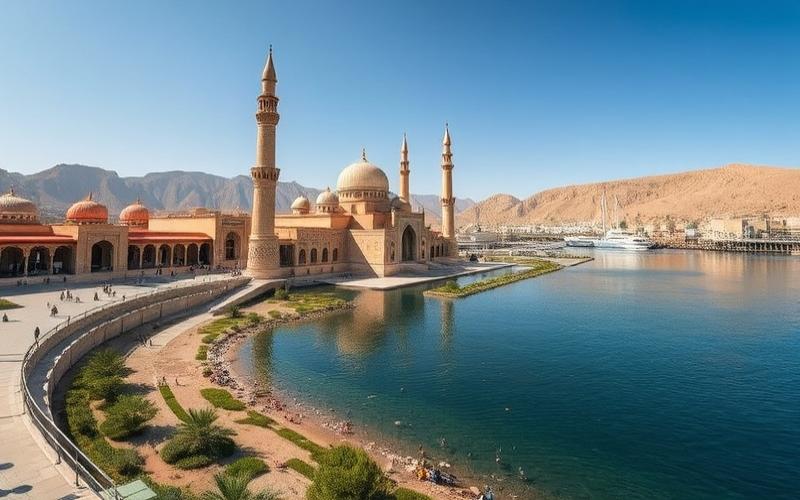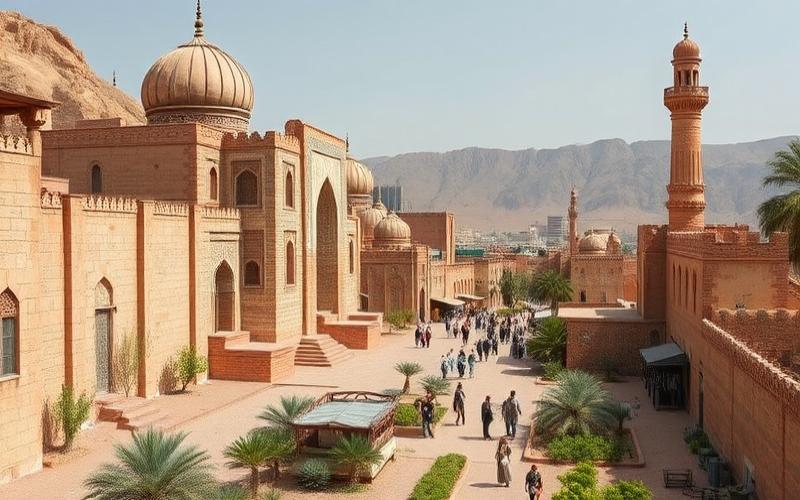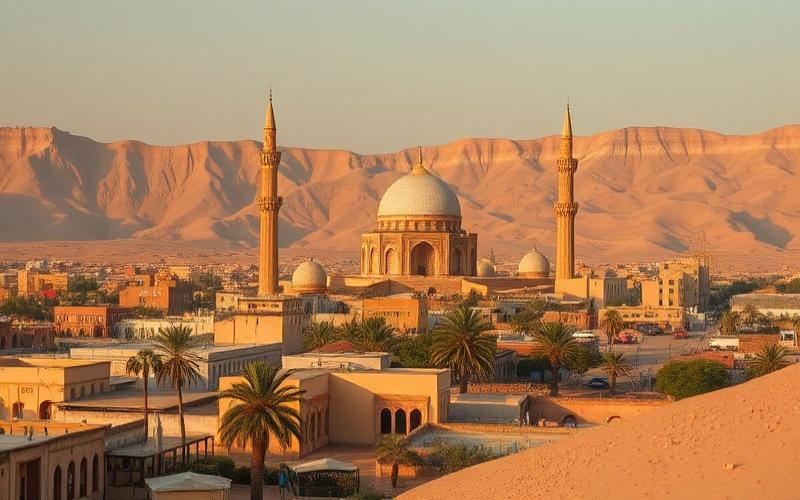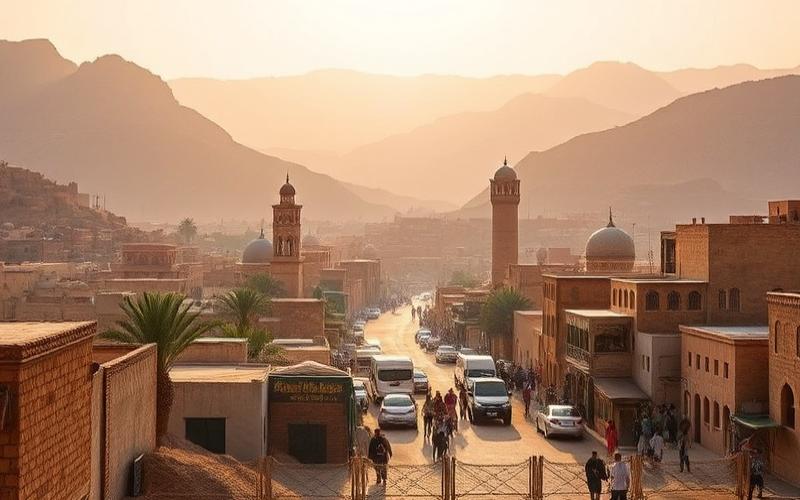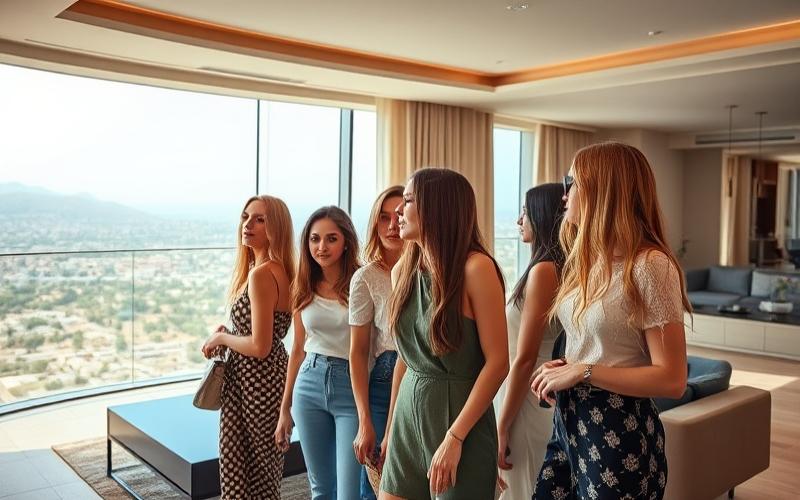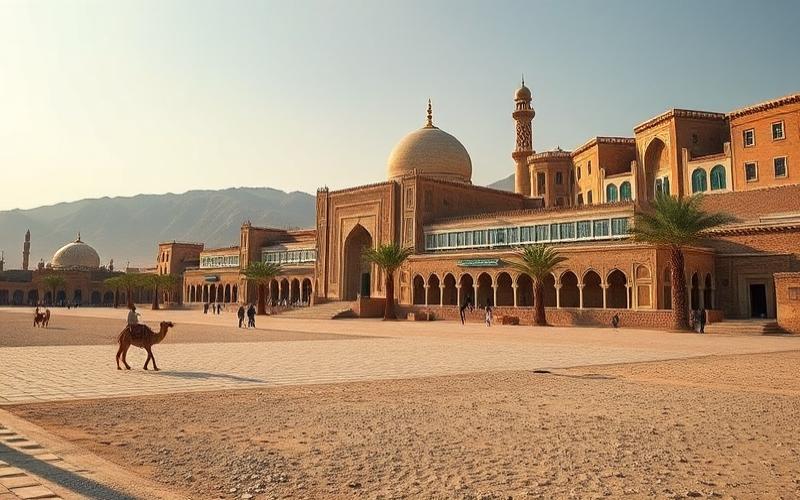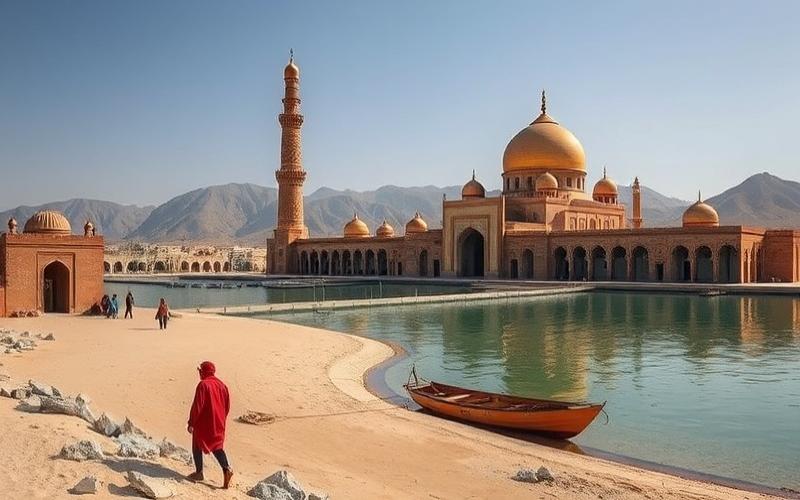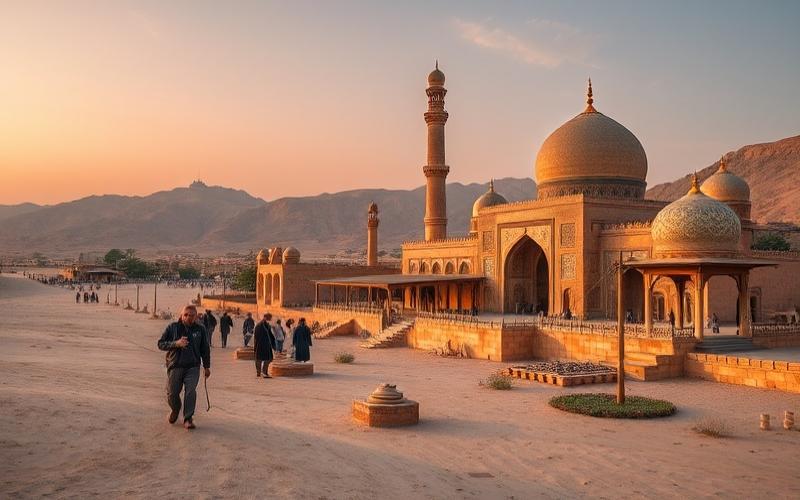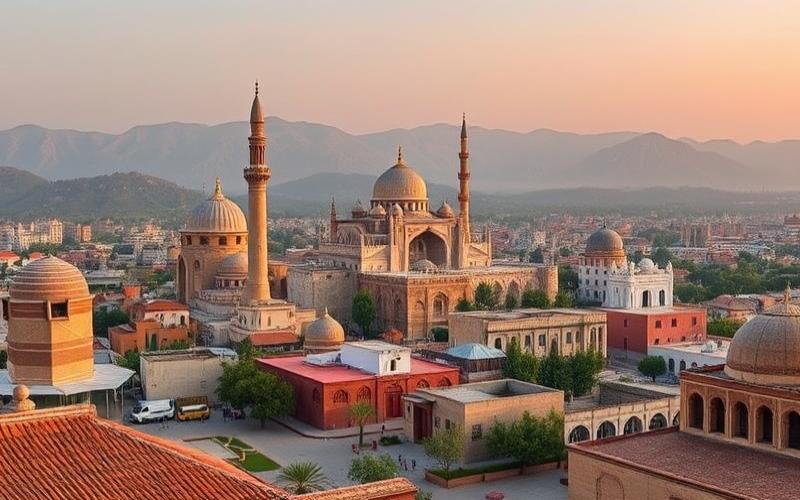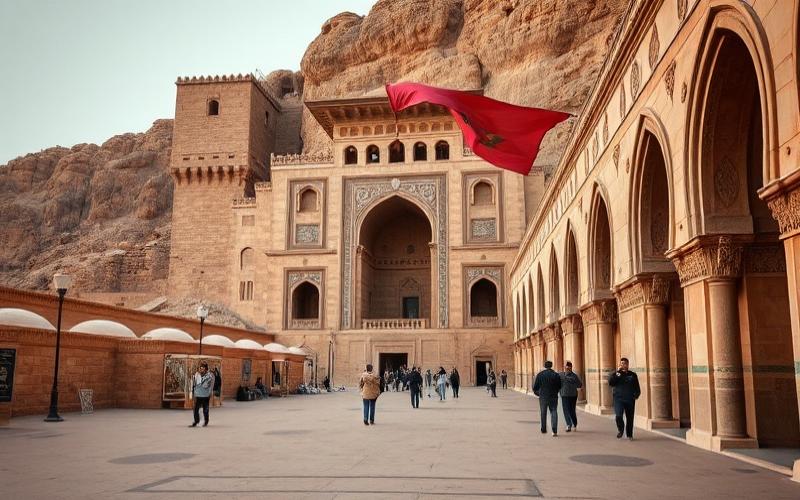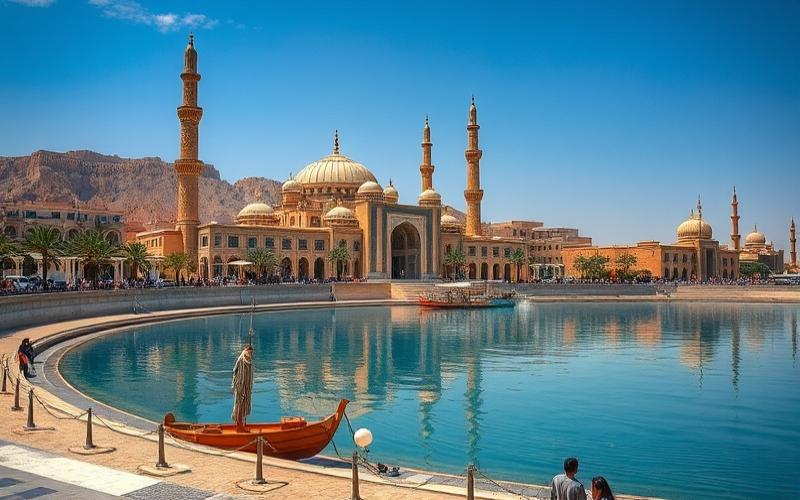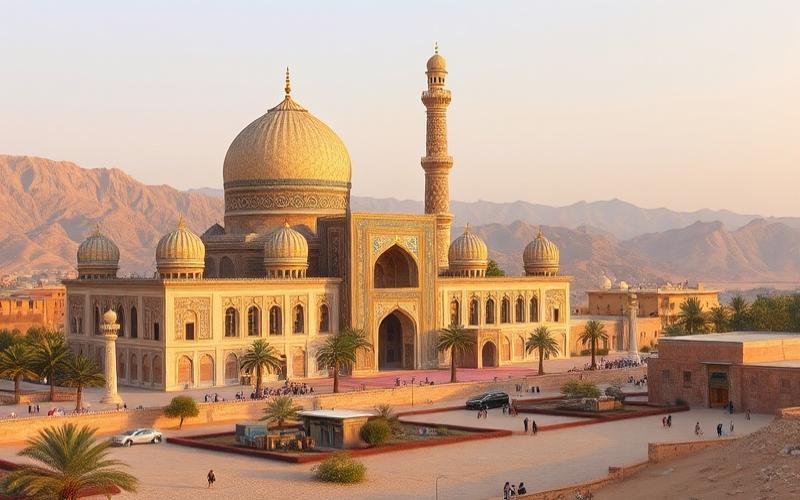
 Published on and written by Cyril Jarnias
Published on and written by Cyril Jarnias
Bahrain, a jewel of the Persian Gulf, stands out for its ambition to become a hub of innovation and modernity, particularly in the real estate sector. One of the notable phenomena in this small kingdom is the rise of co-living spaces, a bold response to the changing needs of young professionals and expatriates seeking flexible and affordable housing solutions.
By combining shared living spaces with modern services and amenities, these residences are redefining traditional housing concepts, fostering community, and facilitating a more sustainable and collaborative lifestyle.
This model is increasingly appealing to real estate developers who see it as an opportunity to meet growing demand while revitalizing Bahrain’s urban landscape.
Benefits of Premium Co-living in Bahrain
Living in premium co-living spaces in Bahrain means enjoying a luxurious living environment, modern amenities, and a dynamic social setting perfectly suited to the expectations of contemporary residents.
Luxurious Living Environment and Modern Amenities:
- Carefully designed residences, often fully furnished with high-end finishes.
- Premium amenities frequently available:
- Swimming pools
- Private gyms
- Integrated co-working spaces
- Game rooms, spas, terraces, or rooftops
- Included services (cleaning, high-speed internet, maintenance)
- Common areas optimized for sociability and comfort, while preserving each resident’s privacy (private bathrooms, individual audiovisual systems).
| Amenity | Frequently Available | Key Benefit |
|---|---|---|
| Swimming Pool | Yes | Relaxation, exercise, socializing |
| Gym | Yes | Fitness, time-saving |
| Co-working Space | Yes | Productivity, flexible remote work |
| Cleaning Service | Yes | Comfort, time-saving |
| High-Speed Internet | Yes | Work, connected entertainment |
Strategic Location:
- Immediate proximity to business districts, major shopping centers, and entertainment venues.
- Easy access to transportation, professional hubs, and major activity areas (e.g., Seef, Juffair, Amwaj Islands).
- Dynamic and secure urban environment, ideal for professionals and expatriates seeking an efficient and enjoyable lifestyle.
Networking Potential and Socialization Opportunities:
- Particularly attractive to professionals, expatriates, and international entrepreneurs.
- Common areas conducive to exchanges, sharing experiences, and creating professional synergies.
- Frequent organization of events, group activities, and social gatherings that strengthen networks and sense of belonging.
Value for Money:
- Shared rent and expenses allowing access to larger, better-located spaces without bearing the high cost of an equivalent individual luxury residence alone.
- Access to amenities and services typically unaffordable in traditional rentals.
- Reduction in additional expenses (gym memberships, cleaning services, etc.).
Community and Flexible Lifestyle:
- Promotes a more flexible lifestyle, adapted to professional rhythms and contemporary expectations (mobility, remote work, quick integration).
- Development of a genuine community: support, mutual aid, sharing of experiences and cultures.
- Ideal solution for those prioritizing sociability, flexibility, and ease of settling in.
Premium co-living in Bahrain embodies a modern response to premium housing needs, combining comfort, connectivity, social networks, and financial optimization, while promoting a community-oriented and flexible lifestyle.
Good to Know:
Premium co-living in Bahrain offers a luxurious living environment with modern amenities like swimming pools, gyms, and co-working spaces, often located in strategic areas close to business districts, shopping centers, and entertainment venues, providing easy and quick access to all essential facilities. These spaces attract professionals, expatriates, and entrepreneurs, facilitating networking and socialization, while offering better value for money compared to similar individual residences, especially in the face of rising real estate prices. Moreover, these co-living arrangements support a community-oriented and flexible lifestyle, tailored to current resident needs, enhancing Bahrain’s appeal as a friendly and dynamic destination for living and working.
Socio-economic and Demographic Factors in Bahrain Driving Co-living Demand
- Growth of the Expatriate Population: Bahrain attracts a growing international workforce, particularly young professionals, tech sector workers, and consultants. This demographic diversity creates strong demand for flexible, affordable housing solutions suitable for stays of varying durations.
- Young Professionals and Students: The young working population, often mobile and seeking opportunities, prefers housing solutions that offer flexibility, shared services, and networking possibilities. Students, both local and international, are also drawn to the co-living model for economic and social reasons.
- Lifestyle Changes: Newer generations value experiences and community over material possessions. The shift towards more urban and collaborative lifestyles, coupled with rising living costs in urban centers, fuels the growth of co-living.
- Cost: Sharing spaces significantly reduces rent, utilities, and maintenance fees, making urban living more accessible.
- Community: Common areas (kitchens, living rooms, coworking spaces) encourage interaction, mutual support, and network building, addressing younger generations’ search for social connection.
- Flexibility: Short-term contracts, furnished units, included services (cleaning, internet), and adaptability to short or medium stays offer an ideal solution for mobile lifestyles.
| Criterion | Co-living | Traditional Housing |
|---|---|---|
| Cost | Shared, affordable | Individual, often high |
| Community | Strong, interactions | Weak, potential isolation |
| Flexibility | High (short contracts) | Low (long-term commitment) |
| Services | Included (cleaning, Wi-Fi) | Self-managed |
Global Trends and Adaptation in Bahrain
- Global co-living trends (growth among digital nomads, students, young professionals, search for flexibility and community) are evident in Bahrain, particularly in the capital Manama and its business districts.
- Local companies and international platforms, such as Mapmelon, now offer dedicated options for digital nomads and young professionals, integrating coworking spaces and community activities.
- Recent projects in Bahrain focus on modular residences, shared services (gyms, event spaces), and all-inclusive rental offerings.
Implications for Bahrain’s Real Estate Market
- Construction: Rise of residential projects adapted for co-living, incorporating shared spaces and compact apartments.
- Urban Planning: New residences promote smart densification, social mixity, and proximity to employment and education hubs.
- Regulation: Co-living development requires adaptation of standards (zoning, safety, taxation), posing challenges in regulating and certifying operators.
Challenges for Co-living in Bahrain
- Long-term Viability: Evolving demand and potential market saturation require constant adaptation of offerings.
- Cultural Integration: The co-living model may face cultural resistance, particularly regarding mixed-gender living or community life.
- Competition: Student residences, extended-stay hotels, and furnished apartments present direct competition, forcing co-living operators to continually innovate.
- Regulation: Administrative and urban planning requirements, sometimes restrictive, can hinder rapid sector expansion.
Future Outlook
Demand for co-living in Bahrain is expected to continue growing, driven by workforce internationalization, work digitalization, and rising urban real estate costs.
Operators who can offer an authentic community experience, tailored services, and contractual flexibility will remain the most competitive.
Co-living is establishing itself in Bahrain as an innovative and flexible response to the country’s demographic and economic evolution, while posing new challenges for real estate players and authorities.
Good to Know:
In Bahrain, the rise of co-living spaces is primarily driven by an influx of young expatriate professionals and a population seeking affordable, flexible housing solutions adapted to modern lifestyles. These spaces, often more economical than traditional housing, also offer a dynamic social community. Local companies like Hala Homes and Nest Residential have capitalized on this trend by offering innovative spaces that combine functionality and sociability. However, while these co-living models meet growing demand, they also pose challenges related to cultural integration and economic longevity. Implications for the real estate market include increasing pressure on urban planning and necessary adaptation of government regulations to facilitate these new housing modes, while meeting market needs for diversity and flexibility.
The Impact of the Digital Community on the Co-living Market
The growing influence of online platforms and social media is emerging as a central lever in promoting and popularizing co-living in Bahrain. Co-living spaces now leverage:
- Dedicated Facebook groups, allowing prospective residents to interact, ask logistical questions, or share past experiences.
- Specific internal mobile apps for each space to organize daily life (events, carpooling, announcements) and strengthen integration even before physical arrival.
- Specialized platforms (e.g., Coliving.com), which provide international visibility for available spaces while gathering community feedback.
| Digital Platform | Main Function | Impact |
|---|---|---|
| Facebook Groups | Networking & experience sharing | Network expansion |
| Proprietary Apps | Internal management & organization | Smooth communication |
| Specialized Forums | Practical advice & integration | Facilitated onboarding |
The digital community also plays a crucial role in sharing authentic experiences. Members share their daily lives on forums or social media, fostering a co-living culture based on trust and mutual aid. These exchanges enable:
- Rapid development of a strong sense of community.
- Sharing of practical advice (health, administrative procedures).
- Spontaneous organization of events strengthening social bonds.
This digital dynamic has directly increased the market’s attractiveness for real estate investors:
- Spaces with positive and visible online ratings show occupancy rates exceeding 90% during major tourist seasons.
- Digital management (automated bookings via platforms) optimizes turnover while reducing traditional operational costs.
For real estate developers:
- A more profitable model than traditional residences due to:
- Increased demand driven by a young, connected clientele
- Enhanced retention through network effects
- Effective digital marketing enabling rapid expansion without heavy advertising investments
The digital community also strongly contributes to building international networks, making Bahrain attractive to:
- Expatriates wanting to integrate quickly
- Digital nomad workers seeking flexibility and connectivity
- International students attracted by the promise of a rich social life
Recent concrete examples observed include:
“In 2024, over 60% of new tenants in some premium Bahraini spaces reported discovering their accommodation via Instagram or LinkedIn; nearly half were already actively participating in WhatsApp/Telegram groups before their arrival.”
“After a targeted launch on TikTok in early 2025 by two major local operators, their average occupancy rate increased from 75% to over 95% during the following four months.”
In summary:
Digital interconnectedness not only accelerates occupancy but also shapes a strong identity around modern Bahraini co-living.
Good to Know:
In Bahrain, online platforms and social media play a crucial role in promoting co-living spaces, increasing their visibility and popularity among youth and expatriate professionals. Digital communities enable experience sharing and strengthen co-living culture, encouraging real estate developers to invest more, thereby attracting a broader and more diverse audience. This dynamic not only boosts attractiveness but also the profitability of co-living projects, thanks to an international network developing through online exchanges. According to a recent study, 65% of new memberships to co-living spaces in Bahrain are influenced by recommendations found on social media, highlighting the importance of this digital community in the sector.
The Rise of Co-living Spaces Among Youth in Bahrain
Co-living refers to a shared housing model where multiple people, often young professionals or students, live together in the same space while having private bedrooms and sharing common areas (living room, kitchen, coworking). This concept aligns with global real estate trends focused on urban densification, resource sharing, and the pursuit of flexibility. Inspired by the success of coworking and the shift towards more collaborative lifestyles, co-living meets growing demand for accessible housing that fosters social exchange and optimizes space utilization.
Key Advantages of Co-living for Young Bahrainis:
- Access to modern, “turnkey” housing with included services (cleaning, internet, maintenance)
- Significant reduction in individual costs through shared expenses
- Opportunity to quickly integrate a dynamic community conducive to socialization
- Contractual flexibility allowing for greater professional or academic mobility
- Sharing of premium spaces like gyms, relaxation areas, or gardens
Specific Reasons for Attractiveness in Bahrain:
- High cost of individual housing in urban centers
- Active search for community experiences among 20-35 year olds
- Growing difficulty accessing the traditional rental market without strong guarantees
- Valuing professional networking in an internationalized environment
| Key Factors | Impact on Choice |
|---|---|
| High Urban Real Estate Prices | Favors shared solutions |
| Increased Social Isolation | Attracts to collective spaces |
| Strong Professional Mobility | Requires rental flexibility |
According to recent studies on the Bahraini market (2024/2025), we observe:
- Estimated annual growth between 10% and 15% for this segment since 2022.
- Over 80% of occupants are under 35 years old.
- Districts like Seef District (Manama), Amwaj Islands, and Juffair concentrate the majority of new projects.
Common amenities include:
- Furnished private rooms with en-suite bathrooms
- High-end shared spaces: extra-large equipped kitchen, connected lounge with TV/high-speed internet, integrated coworking, gym, shared services like laundry/concierge
Schematic example:
| Type of Space | Usage |
|---|---|
| Private Room | Privacy |
| Shared Kitchen | Socialization |
| Coworking Space | Work |
| Fitness Room | Recreation/exercise |
This trend is profoundly transforming the traditional real estate market:
- Increased pressure on the classic rental market; some property owners are converting their assets to benefit from the higher yields offered by these collective models.
- Necessary regulatory adaptation to ensure legal security for residents while avoiding shortages in the traditional housing stock.
For the local economy:
- Direct job creation via specialized managers
- Enhanced attractiveness to international young professionals
- Increased dynamism in previously undervalued neighborhoods
The rapid development of co-living thus contributes to reshaping not only residential uses but also the entire traditional real estate chain—from developers to local investors.
Good to Know:
“Co-living spaces” are shared residential spaces that meet youth needs by combining private living with common areas to foster community life, a global real estate trend gaining ground in Bahrain. Attracted by reduced living costs, socialization opportunities, and resource sharing, many young Bahrainis are adopting this lifestyle. Recent market studies indicate a 25% increase in these spaces in Bahrain in 2023, primarily located in the dynamic neighborhoods of Manama and Seef. Amenities often include shared kitchens, living rooms, and coworking zones. This trend could disrupt the traditional real estate market by decreasing demand for classic apartments, while stimulating the local economy by encouraging service development around these communities.
Disclaimer: The information provided on this website is for informational purposes only and does not constitute financial, legal, or professional advice. We encourage you to consult qualified experts before making any investment, real estate, or expatriation decisions. Although we strive to maintain up-to-date and accurate information, we do not guarantee the completeness, accuracy, or timeliness of the proposed content. As investment and expatriation involve risks, we disclaim any liability for potential losses or damages arising from the use of this site. Your use of this site confirms your acceptance of these terms and your understanding of the associated risks.




